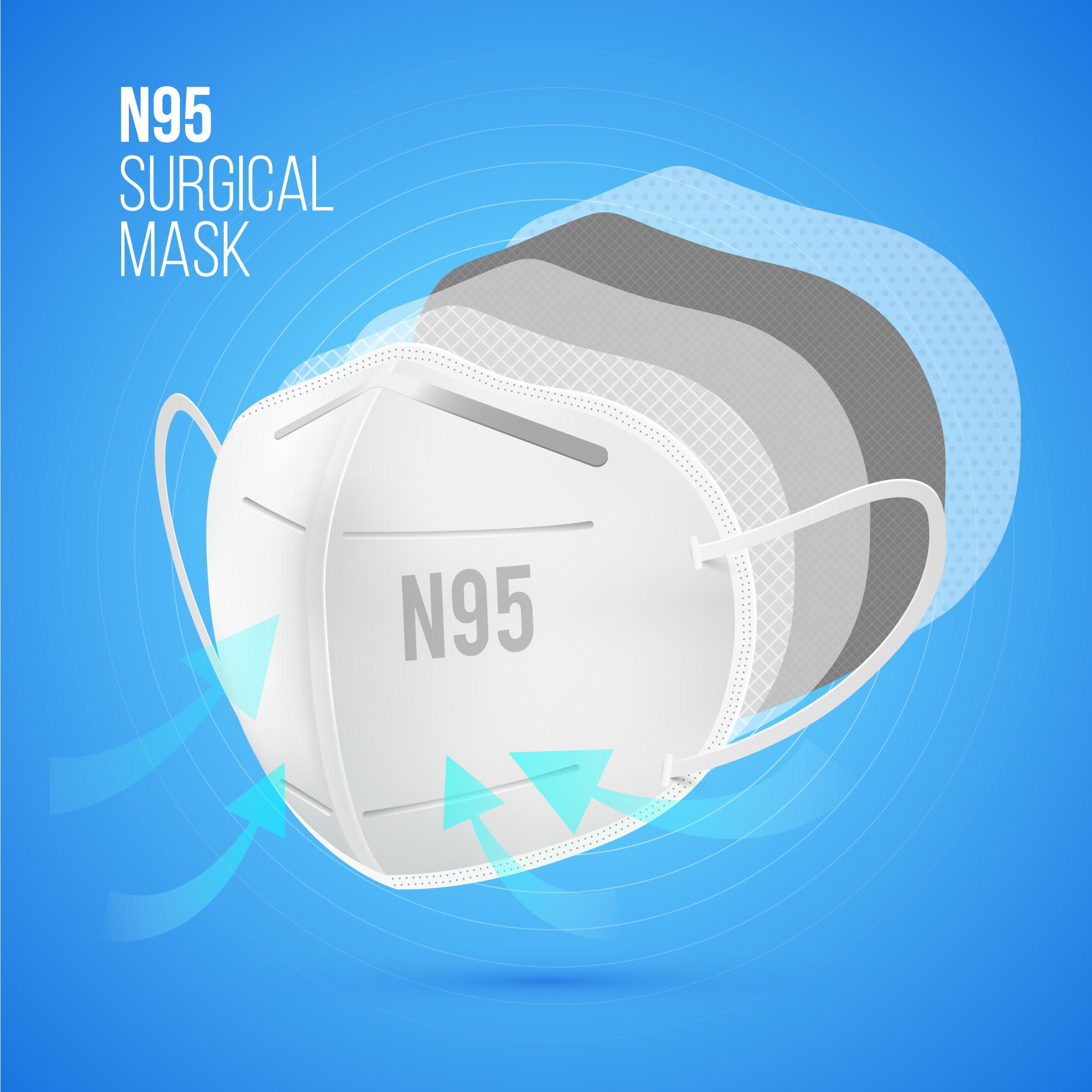

Using N95 mask became routine during the COVID-19 epidemic. Researchers from China’s Shanghai Jiaotong University School of Medicine wanted to determine how long periods of mask use can harm health.
The researchers outline the closely controlled experiment they planned to investigate mask-wearing effects on 30 individuals in their late 20s in their publication “Evaluation of Mask-Induced Cardiopulmonary Stress,” published in JAMA Network Open.
The investigation was conducted on one subject at a time in a metabolic chamber, a scientific apparatus shaped like an airtight room, to assess energy expenditure. Oxygen and carbon dioxide concentrations were measured using a gas analyzer.
Continuous monitoring of blood pressure, 3-lead ECG heart monitor, and oxygen saturation levels was performed. Throughout the trial, participants’ physiological activity was tracked using a wearable motion tracking device attached to the right leg, with the exception of dual-energy X-ray absorptiometry to determine bone density and while showering.
Every participant was given a continuous glucose monitoring sensor and transmitter. The calories in each meal, the amount of water consumed, and the amount of physical exercise were all strictly monitored. The subjects’ urine nitrogen levels were also measured.
Each participant spent three days in the chamber, which had an adjustable bed, a desk, a chair, an exercise bicycle, a wash basin, a toilet, television, and a computer. They were permitted to bring their iPhones, but only during sedentary behavior periods.
During the experiment, daily activities were strictly controlled according to a predetermined schedule that everyone had to follow. Every day, two 30-minute bouts of light-intensity exercise were required at predetermined intervals.
Blood samples were taken before and after masking, as well as before and after light-intensity exercise and 14 hours after masking. Using Visual Analog Scales, participants were asked to rate their overall discomfort. During the day, the questionnaire was administered every hour.
On the first day, all participants were permitted to acclimate to their new surroundings. On day two, half of the individuals wore masks and half did not. The mask-wearing groups were reversed on day three, so that by the end of the trial, all individuals had spent one day wearing a N95 mask for 14 hours.
The outcomes of this well regulated and closely watched experiment are unknown because the majority of the data alleged to have been obtained was not released.
According to the scientists, wearing the N95 mask reduced respiration rates and oxygen saturation within the first hour. The relevance of the observation is unknown because the data was not given and the outcomes mentioned were not specified.
The report on the light-intensity activity period at 11 a.m. indicated a 7.8 beats/min higher mean heart rate, slightly higher blood pressure, increased energy expenditure and fat oxidation, and 4.3 breaths/min reduced respiration rates.
The fewer breaths combined with increased energy expenditure and heart rates are noteworthy anomalies. Higher humidity from wearing the mask may have delayed air exchange if the respiration rate was determined from an aggregate of the metabolic chambers gas analyser, but the explanation remains unknown as the authors made no mention of it.
Following the 14-hour mask-wearing period, venous blood pH declined and estimated arterial pH decreased, while metanephrine and normetanephrine levels increased. If the data had been included in the paper, it would have revealed all possibly significant or unimportant results.
The researchers find that wearing the N95 mask for 14 hours had a substantial effect on physiological, biochemical, and sensory measures.
The paper lacks nearly all of the obtained data based on the experimental design, specified procedures, and declared outcomes. The research may have shown anything, but the published publication did not.
more recommended stories
 Anxiety Reduction and Emotional Support on Social Media
Anxiety Reduction and Emotional Support on Social MediaKey Summary Anxiety commonly begins in.
 Liquid Biopsy Measures Epigenetic Instability in Cancer
Liquid Biopsy Measures Epigenetic Instability in CancerKey Takeaways Johns Hopkins researchers developed.
 Human Antibody Drug Response Prediction Gets an Upgrade
Human Antibody Drug Response Prediction Gets an UpgradeKey Takeaways A new humanized antibody.
 Pancreatic Cancer Research: Triple-Drug Therapy Success
Pancreatic Cancer Research: Triple-Drug Therapy SuccessKey Summary Spanish researchers report complete.
 Immune Cell Epigenome Links Genetics and Life Experience
Immune Cell Epigenome Links Genetics and Life ExperienceKey Takeaway Summary Immune cell responses.
 Dietary Melatonin Linked to Depression Risk: New Study
Dietary Melatonin Linked to Depression Risk: New StudyKey Summary Cross-sectional analysis of 8,320.
 Chronic Pain Linked to CGIC Brain Circuit, Study Finds
Chronic Pain Linked to CGIC Brain Circuit, Study FindsKey Takeaways University of Colorado Boulder.
 New Insights Into Immune-Driven Heart Failure Progression
New Insights Into Immune-Driven Heart Failure ProgressionKey Highlights (Quick Summary) Progressive Heart.
 Microplastic Exposure and Parkinson’s Disease Risk
Microplastic Exposure and Parkinson’s Disease RiskKey Takeaways Microplastics and nanoplastics (MPs/NPs).
 Sickle Cell Gene Therapy Access Expands Globally
Sickle Cell Gene Therapy Access Expands GloballyKey Summary Caring Cross and Boston.

Leave a Comment